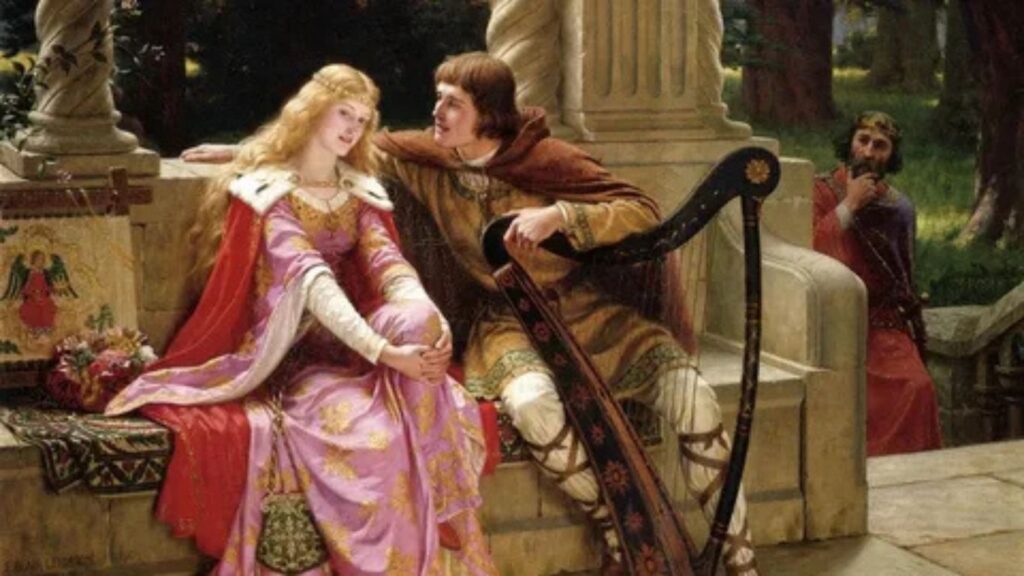3 Overlooked Women in French History With Fascinating Stories
As we celebrate International Women’s Day, let us take a journey back in time to explore the lives of three remarkable women who left an indelible mark on French history. From revolutionaries to intellectuals, these extraordinary individuals challenged societal norms and paved the way for future generations of women. Their stories are as captivating as they are inspiring, showcasing resilience, intelligence, and unwavering determination in the face of adversity.
Women in French History: Eleanor of Aquitaine (c. 1122 – 1 April 1204)
Eleanor of Aquitaine was a woman ahead of her time, wielding significant influence over medieval Europe through her marriages to two powerful kings Louis VII of France and Henry II of England. Her intellect and political acumen defied the conventions of her era, enabling her to shape the course of history in the twelfth century. Eleanor actively participated in governing her territories, advocating for courtly love ideals, and even joining the Second Crusade alongside Louis VII.
Her role as a patroness of troubadours and poets helped foster a cultural renaissance in southern France, elevating the status of women within aristocratic circles. Despite facing multiple imprisonments by her own husband Henry II towards the latter part of her life due to political opposition from their sons, Eleanor remained a resilient figure who left an indelible mark on French history.
The Rebel Queen of the Middle Ages
The Rebel Queen of the Middle Ages, Eleanor of Aquitaine, was a formidable and controversial figure who challenged traditional gender roles and societal expectations. Widely known for her beauty, intelligence, and political savvy, Eleanor wielded power and influence as both the Queen of France and later as the Queen of England. She defied conventions by actively participating in politics, diplomacy, and warfare a rarity for a woman during that time.

Eleanor’s rebellious spirit was evident in her turbulent relationships with King Louis VII of France and later with King Henry II of England. Despite facing imprisonment for inciting rebellion against her second husband, Eleanor remained resilient and continued to assert her authority. Her legacy as a rebel queen extends beyond her tumultuous personal life; she played a pivotal role in shaping the cultural landscape of medieval Europe.
You may interested in reading about: National Macaron Day And The Story Of Macarons In France
Being a woman in France in the Middle Ages
In the bustling streets of medieval France, a woman’s identity was often defined by her relationships: daughter, wife, mother. However, beneath these societal roles lay a complexity that often went unnoticed. Women navigated the constraints of their time with resilience and ingenuity, finding ways to assert themselves in a world dominated by men. From noblewomen wielding influence behind the scenes to commoners running businesses and managing households, each woman carved out her own place in history.
While many aspects of women’s lives were restricted, there were also moments of empowerment and defiance. From the spirited troubadours challenging social norms through their poetry to the fearless female warriors who donned armor and fought alongside men on the battlefield, women in medieval France displayed a wide range of identities beyond the stereotypes. These women defied expectations and shattered boundaries, leaving behind a legacy that continues to inspire and intrigue us today.
A secret marriage to the next King of England
Rumors of a secret marriage between a commoner and the next King of England have been swirling in the shadows of history. Who is this mysterious woman who has captured the heart of royalty? Whispered to be a lady in waiting with beauty that rivals even the most noble bloods, her identity remains shrouded in secrecy.

Intrigue and scandal weave a web around this enigmatic couple, as they navigate their way through court politics and societal expectations. Behind closed doors, vows are exchanged in hushed tones, binding two souls from different worlds together in an unbreakable bond. The palpable tension between duty and desire creates a magnetic pull that threatens to upend centuries-old traditions and rewrite the tapestries of history.
If you are interested in reading about: 10 MOVIES ABOUT MARIE ANTOINETTE + 2 EPIC TV SERIES
A Woman in French history who was ahead of her time
One notable woman in French history who was truly ahead of her time is Olympe de Gouges. Born in 1748, she was a playwright and political activist who advocated for women’s rights during the French Revolution. De Gouges boldly penned the Declaration of the Rights of Woman and the Female Citizen in 1791, challenging the prevailing gender norms of her era.
Her fearless writings called for gender equality, divorce rights, and access to education for women. Unfortunately, her progressive views led to her downfall as she was eventually executed by guillotine in 1793. Despite facing criticism and backlash during her lifetime, Olympe de Gouges’ legacy lives on as a pioneer for women’s rights and a symbol of resistance against oppression.
Women in French History: Lady Carcas – Fact or Fiction
Lady Carcas, a figure shrouded in mystery and legend, has long captured the imagination of historians and storytellers alike. According to the popular myth, Lady Carcas was a noblewoman who played a crucial role in defending the city of Carcassonne against invaders during the Middle Ages. Legend has it that when the enemy forces surrounded the city and it seemed all hope was lost, Lady Carcas devised a clever ruse to outsmart them. She filled a sack with remaining provisions notably a fat pig and threw it over the city walls for dramatic effect.

However, historical records present a different narrative. There is limited concrete evidence to support the existence of Lady Carcas or her heroic exploits during this time period. Some scholars argue that she may have been an embellished character created to symbolize resilience and courage in times of adversity rather than representing an actual historical figure. The debate continues among historians and enthusiasts alike about whether Lady Carcas was indeed real or merely a product of folklore and imagination.
The Siege of Carcassonne and a cunning plan
The Siege of Carcassonne was a pivotal event in the history of the region, marked by a daring and cunning plan devised by none other than Lady Carcass herself. While often overshadowed by male figures in historical accounts, Lady Carcass played a crucial role in defending the city against the besieging forces. Her leadership and strategic prowess were instrumental in holding off the enemy for weeks, earning her a place in history as a formidable protector of Carcassonne.
Despite facing overwhelming odds, Lady Carcus’s plan involved a clever deception that ultimately outsmarted the attackers. By orchestrating false displays of strength and unity within the city walls, she managed to sow doubt and confusion among the enemy ranks, buying precious time for reinforcements to arrive. This bold and resourceful approach not only saved Carcassonne from falling but also solidified Lady Carcus’s reputation as a shrewd military tactician. Her legacy continues to inspire admiration and respect centuries after the siege took place.
This woman in French history is more than just a Great Legend
This woman in French history, Lady Carcas, is more than just a great legend. While many may know her for her legendary role in the siege of Carcassonne, where she cleverly outwitted her enemies by feeding them a well-fed fatted pork and then jumping to her death from the city’s walls to make it appear that they had plenty of food left and were prepared to resist further attacks. However, there is more to Lady Carcas than just this daring act.
Lady Carcas was not only a cunning strategist but also a skilled leader who inspired loyalty and courage among her people. She played a key role in defending Carcassonne against multiple invasions and sieges during a tumultuous period of history. Her legacy lives on not just as a legendary figure but as a symbol of resilience, bravery, and ingenuity in the face of adversity. Lady Carcass’s story serves as a reminder that sometimes it takes extraordinary individuals to shape the course of history and inspire future generations with their remarkable deeds.
Women in French History: Olympe de Gouges (1748 – 1793)
Olympe de Gouges, a trailblazing figure in French history, rose to prominence during the tumultuous years leading up to the French Revolution. Born in 1748, she was a prolific writer and activist who challenged social norms through her powerful writings. De Gouges is best known for her groundbreaking document Declaration of the Rights of Woman and the Female Citizen, which called for gender equality and highlighted the injustices faced by women in society.
Olympe de Gouges paid the ultimate price for her activism when she was executed during the Reign of Terror in 1793. However, her legacy lives on as an inspiration to future generations of women fighting for their rights around the world. Olympe de Gouges remains an iconic figure whose contributions continue to influence feminist movements globally, reminding us all of the power of one individual’s voice to spark lasting change.
The history of Women’s rights in France
The history of women’s rights in France is a tale of resilience and revolution. From the French Revolution in 1789, where Olympe de Gouges demanded equal rights for women through her Declaration of the Rights of Woman and the Female Citizen, to the suffrage movement in the early 20th century led by Laure Adler, French women have been at the forefront of fighting for equality. The post-World War II period saw significant progress with Simone de Beauvoir’s publication of The Second Sex, challenging traditional gender roles and societal expectations.
In modern-day France, organizations like Ni Putes Ni Soumises (Neither Whores Nor Submissives) continue to advocate for women’s rights, particularly focusing on issues such as domestic violence and discrimination. Despite these advancements, challenges remain in closing the gender pay gap and achieving true equality. The history of women’s rights in France showcases a legacy of fierce determination and unwavering resilience that continues to inspire future generations to fight for a more just and equal society.
FAQs About Women In French History
Who is the most famous woman in French history?
Perhaps the most revered woman in all of French history, Jeanne D’Arc (1412-1431), who was inspired by God to fight the English during the Hundred Years War. She was burned at the stake as a witch by the British and canonized as a Saint five centuries later by the Catholic Church.
Who were the famous women in the French Revolution?
Marie Olympe de Gouges. Marie Jeanne ‘Manon’ Roland de la Platière. Marie Louise Élisabeth Vigée Le Brun. Louise Félicité de Kéralio.
Who is the female manifestation of France?
Marianne is the embodiment of the French Republic. Marianne represents the permanent values that found her citizens’ attachment to the Republic: “Liberty, Equality, Fraternity”.
Who did women suffer in French?
Women in the Old Regime suffered for many reasons. They were passive citizens who had no right to vote. They were engaged in various works or jobs but they were paid very low. They worked as tailors, sold flowers, fruits and vegetables or served as household servants.
Who is the famous queen of France?
Described by her brother, Emperor Joseph II, as “honest and lovable,” Marie Antoinette was an Austrian princess and the wife of King Louis XVI. She remains one of the most iconic characters in Versailles’ rich history. She arrived at the French Court aged only fifteen.







